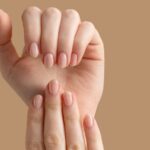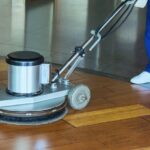- Hydration is about more than drinking water—your body needs minerals to function correctly.
- Everyday situations like workouts, travel, and illness often deplete essential nutrients and fluids.
- Relying on thirst or the “eight glasses a day” rule can lead to underhydration or imbalance.
- Whole foods, smart beverages, and consistent hydration support better energy and health.
After your morning run, you chugged a bottle of water, but the fatigue lingers. Your skin still feels dry, your muscles a bit sluggish, and there’s a nagging sense that you’re not quite refreshed. If water is supposed to be the ultimate thirst-quencher, why do you still feel… off?
That’s because hydration isn’t just about water. It’s about balance. Your body craves a delicate mix of fluids and minerals to keep everything running smoothly, from your brain to your biceps. So when you’re reaching for another glass, you might need something more nuanced than plain old H2O.
Let’s explore what your body is really asking for when you feel thirsty and how you can start hydrating smarter, more effectively.
Why Water Alone Isn’t Enough
It’s easy to think hydration begins and ends with drinking enough water. After all, about 60% of your body is made of the stuff. Water lubricates your joints, helps flush out toxins, keeps your skin supple, and is essential for nearly every cell function. But here’s the twist: water can’t do the job alone.
Picture this—your body’s cells are like little factories. Water helps move things in and out of those factories, but the real regulators—the managers of the whole operation—are electrolytes. Without them, water doesn’t get appropriately distributed, muscles misfire, and energy production slows down. In fact, drinking too much water without replenishing electrolytes can even throw off your internal chemistry.
That heavy, tired feeling you get despite drinking liters of water? It could be your body waving a red flag, saying, “Hey, I need more than just liquid—I need support.”
Understanding the Real MVPs of Hydration
So what exactly are these behind-the-scenes heroes? Electrolytes are essential minerals, like sodium, potassium, calcium, and magnesium, that carry electrical charges. They regulate everything from muscle contractions and nerve signals to your heartbeat and hydration levels. When these minerals fall out of balance, even slightly, your body can start to feel the effects fast.
Maybe you’ve experienced leg cramps during a hike, a post-workout headache, or that sluggish fog after a sweaty day outdoors. These are all signs that your electrolyte levels might be running low.
That’s where electrolyte powder comes into play. It’s become a go-to for athletes, travelers, and anyone looking to keep their hydration game strong. Instead of waiting for your body to catch up, these powders quickly boost essential minerals, helping your system absorb and retain the water it needs. And they’re not just for high-performance athletes. Whether you’re recovering from a cold, powering through a long day at work, or sweating it out in the garden, they offer an easy way to stay ahead of dehydration.
But the real value lies in awareness. Knowing that hydration isn’t just about the amount you drink, but what you drink, is a major shift. Once you understand the role of electrolytes, you’re better equipped to give your body what it’s truly craving.
Everyday Situations Where You Need More Than Water
Hydration needs change depending on your environment, activity level, and stress. While water is always part of the picture, there are plenty of moments when it’s not enough to keep you functioning at your best.
Think about the last time you finished a challenging workout or jogged on a humid day. Sweat doesn’t just take water with it—it pulls out essential minerals, leaving your body in recovery mode. Without replacing those lost electrolytes, fatigue and sluggishness can set in quickly.
Then there are travel days. Whether flying cross-country or road-tripping across states, long hours in climate-controlled environments can dry you out fast, add inconsistent meals, coffee overload, or airport snacks, and your electrolyte balance can take a hit before you even realize it.
Illness is another hidden hydration thief. Fevers, stomach bugs, and mild colds can quietly drain fluids and electrolytes. And let’s not forget the everyday scenarios: working long hours under artificial lighting, spending too much time in heated or air-conditioned rooms, or sweating it out while gardening in the sun. These might not seem intense, but they chip away at your hydration levels over time.
In all these situations, simply increasing your water intake might not solve the problem. It’s about recognizing when your body is running on empty—on more than just fluids—and learning how to support it better.
Hydration Myths That Keep You Dehydrated
Let’s bust a few myths while we’re here, because chances are, you’ve been following some old-school hydration advice that might be doing more harm than good.
First up: “Eight glasses a day.” It sounds neat and easy to remember, but the truth is, your body doesn’t work on a one-size-fits-all rule. Hydration needs vary depending on body size, activity level, climate, and diet. For example, someone who eats lots of water-rich fruits and vegetables may need less to drink than someone living on salty takeout.
Another common myth is that thirst is the best indicator of dehydration. When you feel thirsty, your body is already short on fluids. Worse yet, some people lose their sense of thirst in extreme heat, cold, or illness, making it a pretty unreliable gauge.
And then there’s the idea that more water is always better. Believe it or not, overhydration is a real thing. Drinking excessive amounts of water, especially without replenishing electrolytes, can dilute your blood’s sodium levels and lead to a condition called hyponatremia. It’s rare but dangerous—and a perfect example of how balance matters more than volume.
So what should you do instead? Listen more closely to your body’s signals—like energy dips, headaches, or brain fog—and think critically about what you’re drinking, not just how much. Real hydration is about supporting your body with the right mix of fluid and minerals, not just meeting a daily water quota.
How to Replenish the Right Way
Once you understand that proper hydration goes beyond water, it’s time to shift how you replenish. It doesn’t have to mean overhauling your diet or guzzling fancy drinks all day. It just means being a little more intentional.
Start with your meals. Plenty of everyday foods are rich in the minerals your body needs to stay balanced. Bananas offer a potassium boost, leafy greens serve magnesium, and yogurt or seeds can help restore calcium. Even something as simple as adding a pinch of sea salt to your meals can support sodium levels, especially after a workout or a sweaty day.
Then there’s hydration through whole foods. Watermelon, cucumbers, oranges, and strawberries have high water content and offer natural sugars and minerals to help your body absorb fluids better. Think of it this way: you’re not just topping off your internal tank but improving how well it holds on to fuel.
Of course, there are times when you need a quicker or more concentrated way to restore balance. That’s when it makes sense to reach for smart, supplemental options. Look for beverages or mixes with a well-rounded blend of minerals without excess sugar or artificial ingredients. And keep an eye on timing—sipping before, during, and after high-output moments (like workouts or long flights) can keep your system running smoothly.
Above all, consistency is key. Hydration shouldn’t be a once-a-day check-in; it plays out in small daily choices. From what you eat to how you drink, each decision adds to better energy, focus, and overall well-being.
Conclusion
So, what’s your body asking for when you feel parched, foggy, or fatigued? It’s not just begging for more water but for balance. Proper hydration supports the intricate systems that keep you functioning, not just filling up your glass.
You’ll start to notice the difference once you tune in to what your body truly needs. You’ll feel steadier, stronger, and more alert, like your body and mind are finally on the same page. So the next time you reach for a drink, ask yourself: Am I just quenching thirst, or am I replenishing?






